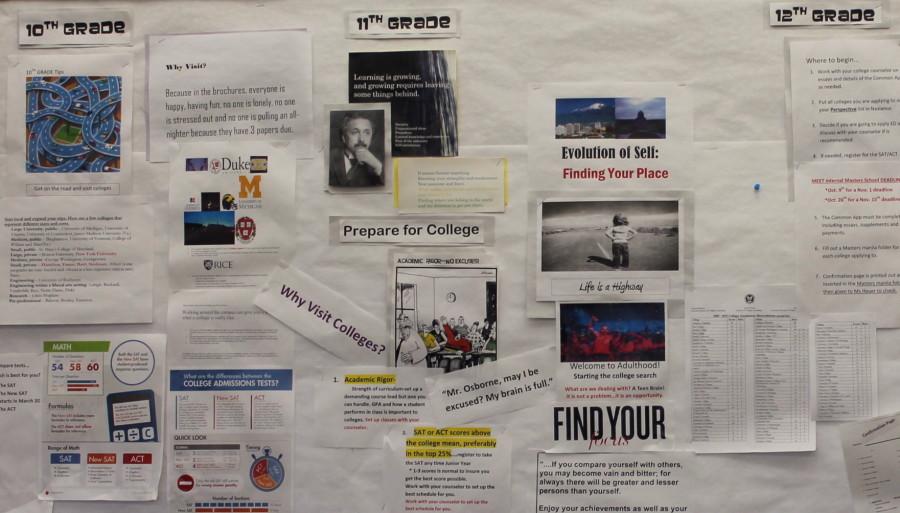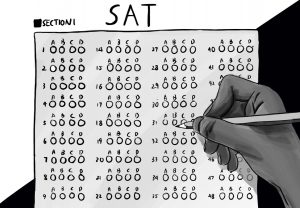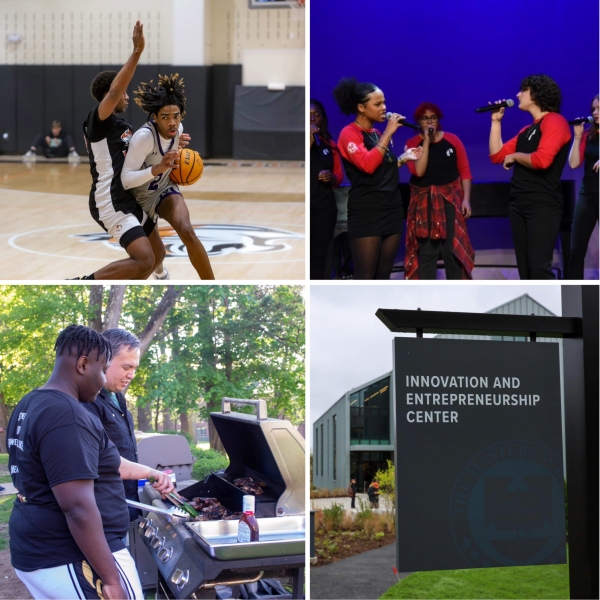Enjoy the high school years, keep college in perspective
March 9, 2016
“If I don’t get a good grade, then I won’t get into a good school and I won’t have a good job and I won’t be successful… my life is over!” Something along the lines of these words, or these exact words, have been said by a high-schooler at least once. Now that first semester grades have been sent out, the pressure to excel in the upcoming semester is extremely high, especially for those concerned about college—so basically, everyone.
At preparatory schools like Masters, the general expectation is that students are here in order to achieve high academic success that will put them on track to reach goals of attending top schools in the country and around the world. But perhaps there is too much emphasis placed on college. It seems that everything we do as high school students affects our ability to get into our college of choice. When we aren’t studying, we’re thinking about how we should be studying; when we’re quiet at the Harkness table, we’re thinking of ways we can participate and improve our GPA.
Though there have been countless Morning Meeting presentations centered on the importance of learning to learn instead of learning for a certain grade, it is just a fact that numbers are ultimately the key to our “success” and play a part in determining our future. It would be nice to say that we are thinking about how to improve around the table because we are primarily concerned with furthering our knowledge, but it is evident that college is the main, underlying reason for our stress.
It is safe to say that the college application system has become more competitive: in the past 30 years, the number of students applying to college has gone from 26% to 41% though the number of spots available remains the same. Elite colleges accept as little as 5% of applicants, and acceptance rates for “safety schools” are dropping as well; it is no wonder that high-school students are taking more extreme measures in preparing for the college process. Some students begin studying for the SAT as early as sophomore year in an attempt to secure a path to an Ivy League or top university while others load themselves with a wide range of extracurricular activities that consume all free time. In an environment where introductions to college counselors are made in the tenth grade, it is only natural that students would be focused on the next step in their lives instead of the current one.
Something in this culture has to change. How are we supposed to experience our four high school years to the fullest extent if we are hyper-focused on the next four to come? The thoughts of college that constantly loom over our heads limit our ability to appreciate life as it is now, a time which should be filled with the adventures that come in the final years of childhood. We spend a majority of our time concentrated on the future when we should be enjoying the now. The rest of our lives will be spent in adulthood: why should we destroy years of our youth which we will never be able to relive?
We’re sacrificing too much sleep and peace of mind for a mere four years in a time when people are living until the age of one hundred. Though it is not to say that college is unimportant and working hard for it is unnecessary, there is a point when the preparation becomes extreme and limits are pushed which we did not even realize existed. Masters should create an environment which upholds academic standards while reminding students that they should live not only for the next four years, but the forty plus years which come after as well. By establishing a culture of striving for long-term happiness and success, Masters becomes not just a preparatory school for university, but for a student’s entire life as well.
So– let us remind ourselves that our lives are not over simply because we don’t get that grade we wanted on a certain test, project, or assignment. Our lives will continue well beyond high school and college. We cannot expect to know everything at this point in our lives; we cannot expect that everything we touch will turn to gold instantly; we cannot expect to be perfect, because it is unrealistic and we are human. We get one life: let’s realize that we should live it out over a long span of time rather than during these few eight years.





















